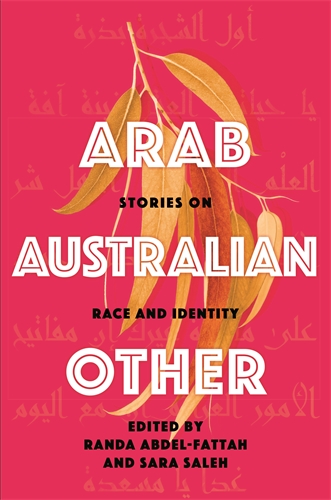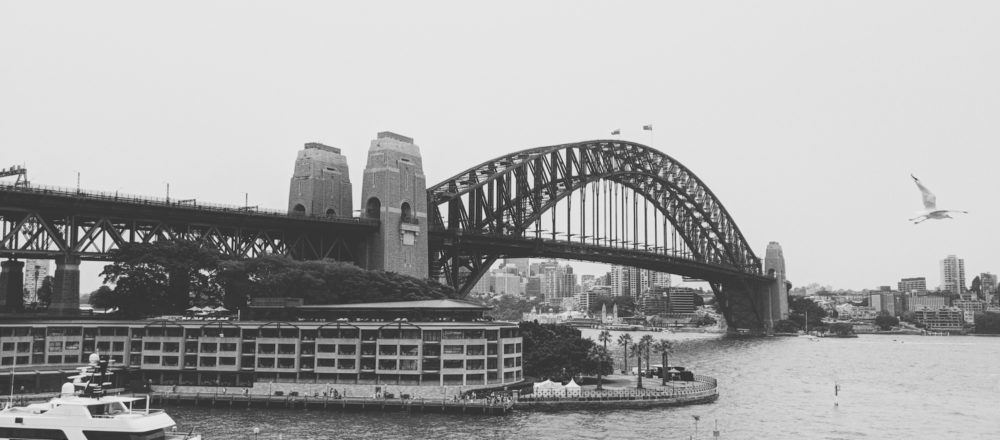
Arab, Australian, Other: Stories of Race and Identity
Ed. by Randa Abdel-Fattah & Sarah Saleh
Pan Macmillan Australian 2019
In Arab, Australian, Other: Stories on Race and Identity, editors Randa Abdel-Fattah and Sarah Saleh escort readers into an assembled community of writers which, though vast and diverse, retains a deep temporal specificity and conveys staunch positionality.
The book’s preface places the reader in a post 9/11 era, in which the word “Arab” is “more an accusation than an identity”. The title, Arab, Australian, Other foreshadows the editors’ approach – a textual assertion that evokes coherence without glossing over the ways in which the multiple identities are permitted to remain, in a sense, incoherent. When dealing with matters of identity it is tempting to fetishise unity or over-simplify a common struggle. Through the paradox of the anthology, this collection simultaneously conveys the heterogeneity of the Arab-Australian-Other narration alongside a unifying theme – the liberation inherent in the experience of identity as fluid, personal and even inconsistent.
Saleh and Abdel-Fattah draw and anchor their bow point-blank on the fallacy of freedom. In particular, the freedom to be fluid, freedom to participate, freedom to deviate from an exogenous narrative. Lebanese anthropologist Ghassan Hage, in White Nation: Fantasies of White Supremacy in a Multicultural Society, posits the contention that “multiculturalism”, far from being the beacon of freedom, is really just a different way of reinforcing white power.
In his contribution to the collection (which reads a little like a hermeneutical companion to his book The Lebs) Michael Mohammed Ahmad invokes Hage in his illustration of the way that mainstream Australian media perpetuates a vilifying myth about crime rates amongst ethnic communities. Ahmad elucidates attitudes which refuse to recognise the religious, cultural, economic and social diversity of Arab Australian communities and lays bare the “crude racial stereotyping” apparent in media, politics and everyday parlance. Media representations feature in the contributions of Ruby Hamad, Elias Johnson, Sara Ayoub and others. Understanding the way “Lebs” are constructed in popular media and the impact this has on the authors’ freedom to experience identity as a subjective process, speaks to the dialectic of power and provides powerful counter-narratives to a dominant, homogenous, description conveyed in post 9/11 media.
Authentic chronicling within each contribution asserts a nuanced resistance to any falsified unity. The authors explore the intricacies of food, family life and relationships as the fabric of a sense of self. Whilst also positing these intricacies as a mechanism for othering and rejection. In her contribution, Miran Hosney ruminates on her own heterogenous Arab, Australian, Other identity and brings it home: “I’m not here to correct fake news.” Hosney’s parents come from Egypt but, she coaches, her “personal strain of ethnic culture cannot truthfully be described as purely Egyptian.”
Hosney enumerates her daily life in corroboration: the simultaneously mundane, yet intimate, experiences of buying groceries – Lebanese may zahr in Ramadan and swapping Egyptian atayef for Gazan-style sweet cheese with Palestinian friends. She writes of breaking fast on Eid-ul-Fitr with Lebanese maamoul and Iraqi klechas. She speaks of celebrations with Algerian friends bringing trays of shiny almond-meal desserts and incense smoke inhaled at Palestinian and Khaleeji friends’ homes. Miran’s refrain unfalteringly contends:
I am as broadly Arab-Australian as the general, homogenous sounding label would deem… I will forever and always fight for the death of racist stereotypes, and for my right to claim and connect with and bear proudly all the labels that make up the cultural, racial and ethnic flavour of my Melbourne-born, Sydney-raised, Egyptian, African, North-African Arab, Arab-Australian, Muslim woman self.
The authors’ intimate, and irreducible, accounts of daily life transcend the meta-discourse that often surrounds identity parlance and unavoidably challenges any simplified, racialised, solidified definition of what it means to be (called) Arab in Australia. The heteroglossia inherent to the anthological genre itself, and the particular composition of this collection, operates as a metaphor for the book’s (and Edward Said’s) assertion: “no-one today is purely one thing.”
Abdel-Fattah and Saleh place these stories within a moment in time, that of a post 9/11 world at war with and on the “Middle East.” Despite this temporal framing, one effect of the collection is to acknowledge that the detritus of power – racism, colourism, oppression – is not confined to any time, place or experience. It is demonstrably omnipresent right through the machinations of mass media to the daily tasks of buying groceries and sharing food. Whilst unapologetically united in the polemics of identity, the medley of prose and the diverse authorship collected in these works disavows homogeneity.


